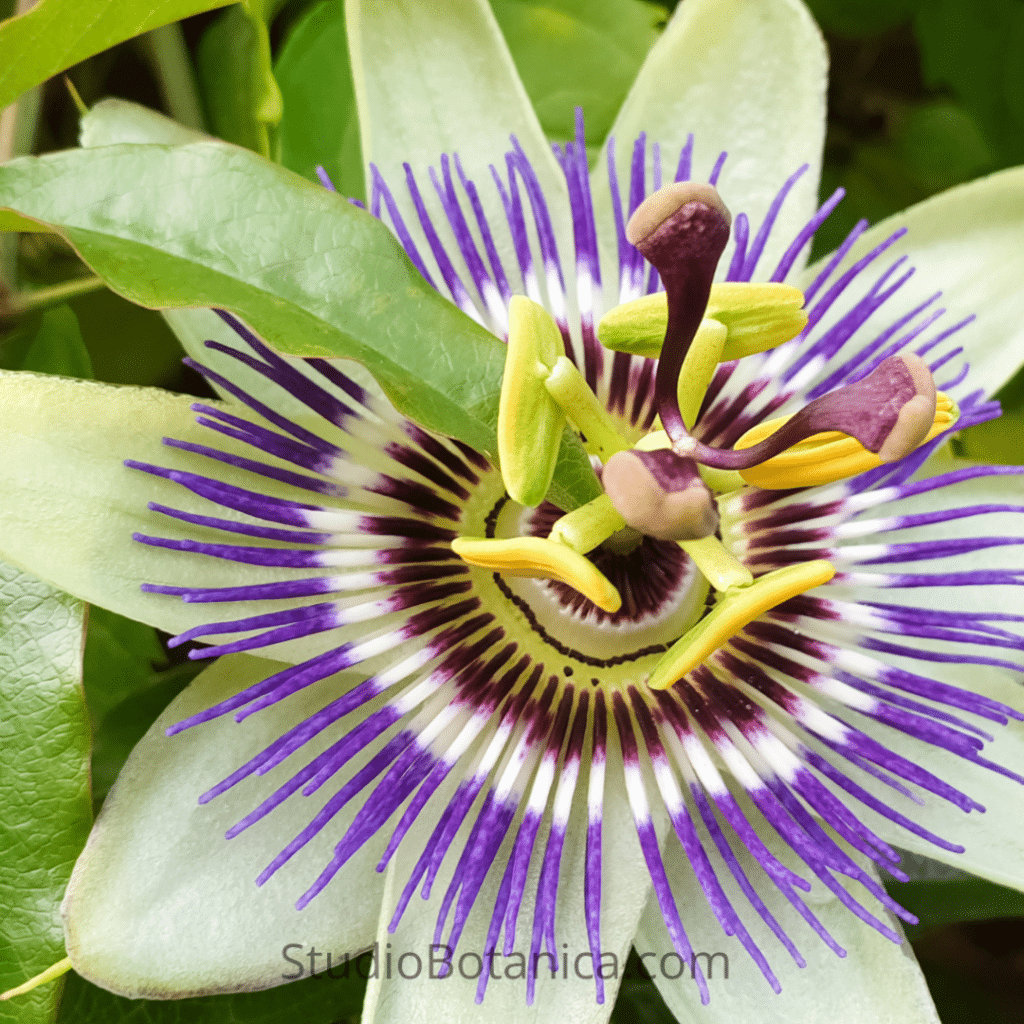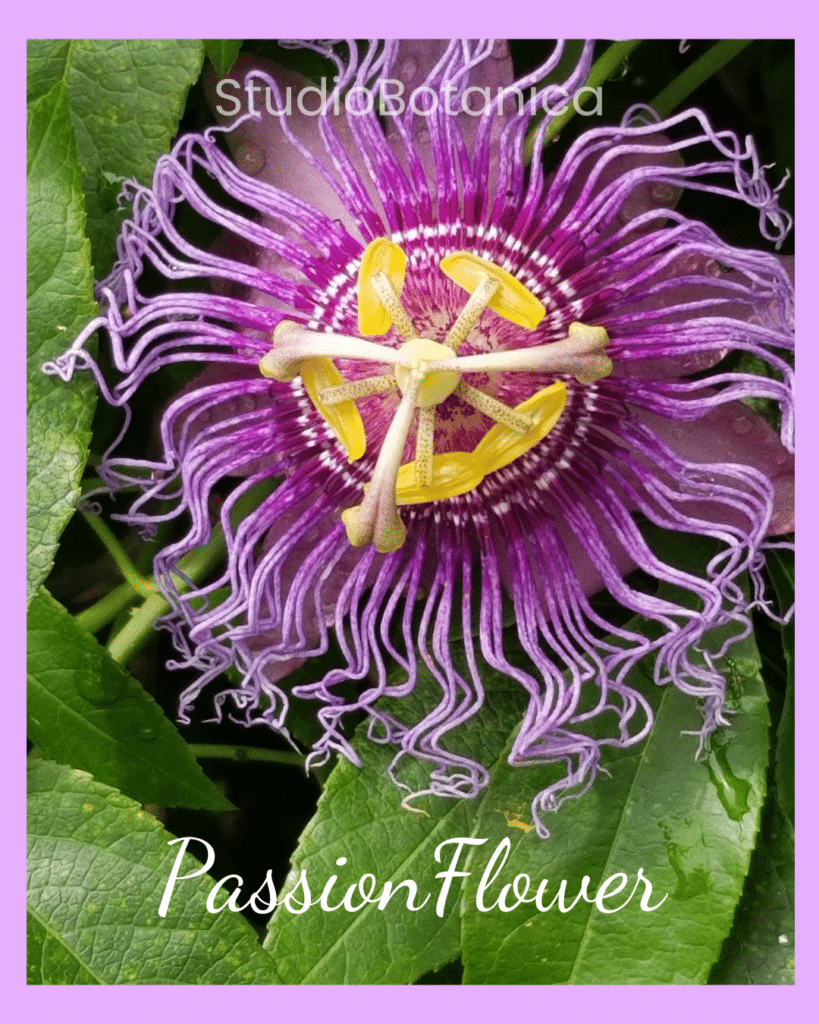Passionflower (passiflora incarnata) Medicine-- it's a good herb to know. We use the stems, leaves and flower when the leaves are very green near the beginning of the flowering period. Passionflower is a phenomenal herbal medicine and always a part of my apothecary. Don't you just wonder about that name?
Such an interesting plant ally. Extremely unusual in appearance + very beautiful with lots of colour combinations.

Passionflower Medicine Highlights:
antispasmodic
anxiolytic
aperient
cardiac
relaxant
sedative
tranquilizer
vasodilator (general, neural and peripheral)
I think of passionflower medicine when people need help getting to sleep, and staying asleep too. It's especially helpful for times when thoughts keep rolling over and over and one feels anxious and pre-occupied.
** Also, when nightmares are present during the night, with fearful thoughts encroaching on peaceful dreams.
Insomnia is an issue with so many people. It can help with both 'sleep onset' and sleep maintenance' insomnia. Passionflower combines well with other nervines and sedative-type herbs like skullcap and hops or valerian.
In fact, I don't use passionflower tincture alone, but almost always in combination with other supportive herbs for best results (usually 40% of the formula at most)
In cases of extreme stress and anxiety, passionflower combines well with hops, motherwort, skullcap or valerian. It is a very good anxiolytic and tranquilizer to soothe and calm. As a 'relaxant', passionflower goes well with catnip, lavender, lemon balm and milky oats. This type of formula can be a good choice when we need a good daily tonic type remedy in times of overwhelm and worry.
It is very effective in inflammatory nerve conditions (e.g. tinnitus) when combined with St. John’s Wort. It is very good for neurological conditions characterized by tremors and convulsions (e.g. Parkinson’s).(1)
Passionflower Medicine can also be helpful treating cardiovascular conditions. It is a fairly good cardiac and vasodilator (it increases blood flow to the peripheral tissues). It can be used in the short term treatment of high blood pressure as it has hypotensive qualities.(1)
I have not personally used passionflower for the following but sharing from my class notes from the Living Earth School (1): It is used to help people overcome addictions to such things as nicotine, opium, etc.
Passionflower combines well with black cohosh, kava kava and motherwort to relieve cramping and painful menses aka dysmenorrhea. Can also soothe a very cranky PMS mood. (2)
Passionflower can be given to children to help with teething, and calm those who are bouncing off the walls.. There's a specific dose, of course, depending upon the age and weight of the child. (See below)
"Many parents use it with children who wake frequently throughout the night sleep more soundly... Can be helpful in treating children's acute or chronic anxiety, and also to help them deal with an acutely traumatic or stressful situation" (2)
** in these cases, I also may add Bach flower remedies. In particular "white chestnut" remedy is particularly helpful for restlessness and thoughts which go around in our heads like the proverbial broken record.

Other helpful properties:
anti-addictive
antibacterial
anticatarrhal
antifungal
anti-inflammatory
appetite stimulant
astringent
bitter
cholagogue
depurative
diuretic
emmenagogue
expectorant
hypotensive
hypnotic
nervine
vulnerary
NOTE: Not recommended in pregnancy or when taking anti-convulsant, anti-depressant or sedative drugs.

If you want to order some passionflower to experiment with, here's a good link to get your own Passionflower !! (source Mountain Rose Herbs)
(1) notes from materia medica Living Earth School of Herbalism (link)
(2) Juliet Blankespoor - Chestnut School of Herbal Medicine (link)
Do reach out to me if you want to book a consult. Just email me at carol@studiobotanica.com
Here's to our health -- Here's to good sleeps + dealing with life + less 'overwhelm'.
Carol xo


Leave a Reply